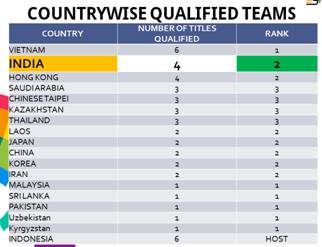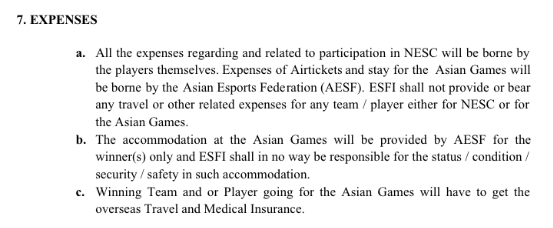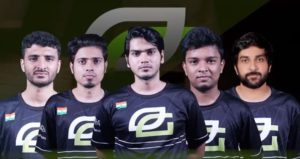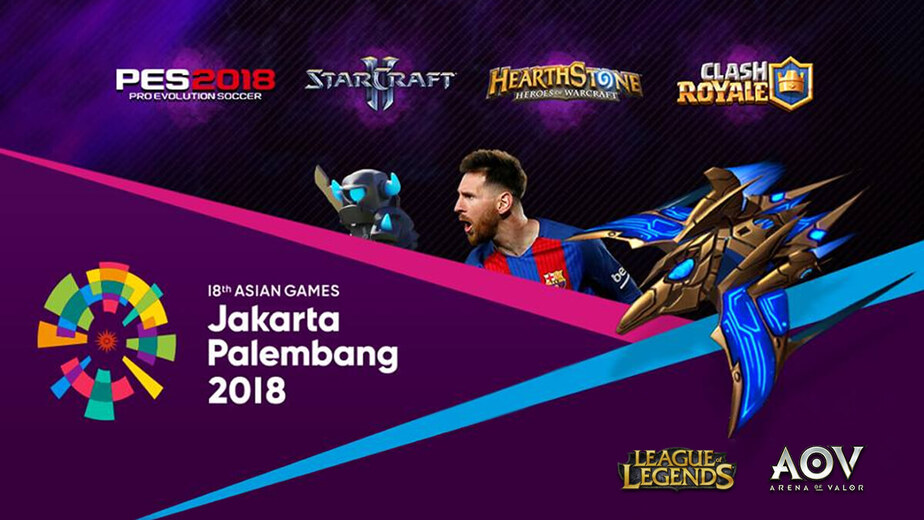Co-authored by Armaan RM and Simran Taneja
To a non-gamer, the difference between casual gaming and “professional” Esports is indiscernible. Much like any other sport, however, the difference between hobbyists and professional gamers is their skill and aptitude for a game which they dedicate most of their waking hours to. So it is only natural that Esports gamers centre their social lives around cultivating networks of experts and fans who watch and play together from all over the world. The perception of Esports athletes differs from country to country. In South Korea, Esports athletes are paid better than conventional athletes; let’s see how Indian gamers are different on this front.
The Indian Potholes
One would have expected Esports in India to take off with fanfare due to the sheer number of Multiplayer Online Battle Arena (MOBA) game players in urban cities. Every college-going student knows someone who either plays PUBG, Counter-Strike or DOTA 2.
The India Gaming Carnival was expected to give Indian Esports a new lease of life in 2012. It hosted professional teams including Orange Esports, MiTh Trust and Moscow5 with a prize pool of $300,000. However, just days before the final event, it was called off by the organisers (WTF Eventz) when Moscow5 reached the semifinals of the tournament.
The organisers reportedly cut the electricity from the venue and disappeared without warning, leaving the international team stranded. Apparently, the director of the organising company claimed that the security issue had been out of their control and assured the team of compensation for their travel expenses and slashed prize amount for first place. Till date, the community awaits news of the team’s receipt of compensation. Needless to say, scandal scarred the legitimacy of Esports in India.
Pro-Gamers’ Asian Games Unrest
Some believed that when Indian professional gamers were invited to participate in the Asian Games’ demonstration of Esports this year, India would see a fresh beginning in the international Esports space.
On 6th June, though, an individual anonymously expressed his concerns on Reddit regarding the Asian Games declaration drawn up by the Esports Federation of India (ESFI). After discussing the matter with him, Indian Esports caster Bleh and Entity Gaming manager, Sid Joshi, called out about the legitimacy and legality of the declaration. This resulted in outrage within the Esports community regarding the unfairness and alleged mistreatment of Indian pro-gamers by the ESFI.

Still, facilitated by the ESFI, with 4 out of the 5 Indian teams qualifying, India placed 2nd rank during the Asian Games’ qualifying rounds.
TooOpLive, a Twitch Streamer pointed out that “unlike most Esports Federations in other countries, ESFI is not acknowledged by the Indian Olympic Association”. However, ESFI director Lokesh Suji affirmed that the federation has been engaging in talks with the Indian Olympics Association. The cleavage between the two testimonies begs the question:
Should the gaming community have been informed of the circumstances under which the federation was functioning?
Given that Esports is relatively unknown in India, due to its slow gain in popularity, the incident did not see the light of mainstream news. The haphazard and casual ESFI declaration and lack of public recognition goes to show that for professional gamers to thrive in India, there needs to be recognition and adequate organisational and official support.
This is the contract players are being coerced to sign to participate in the Asian Games if they’re from India. The qualifiers are being hosted by @esfindia
I am no authority on contracts, but a cursory glance shows how utterly vile and atrocious this contract is. pic.twitter.com/ugL5laIr4Y
— Bleh ?? (@OfficialBleh) June 6, 2018
Prominent Esports Personality Bleh’s take on Indian Esports and the Asian Games. A blog post by prominent Indian Esports team AFK gaming alleged that the Pan-India qualifiers were organized at a very short notice of 2-3 days.
Some players refused to sign the declaration due to concerns over their rights as players due to its misleading phrasing. In response, ESFI promised to rework its contract, but the revised declaration is yet to be seen. When The Bastion asked ESFI director, Lokesh Suji about the same, he said that the reviewed document is still being assessed by their lawyers, and will be published to the community soon as a “draft”. This draft will be open to suggestions, comments and consequent amendments.
It is commendable that despite sub-clause xviii of the declaration wherein it holds itself “not liable” to address the concerns of Esports players, the ESFI has recognised and responded to players’ concerns.
ESFI also later affirmed that the Asian Electronic Sports Federation (AESF) would be responsible for the travel costs for Asian Esports qualifiers, as pointed out in clause 7a of the declaration. A poor choice of words made the International gaming community believe that the declaration was one-sided and an attempt to exploiting players.

However, this clause 7a clashes with sub-clause xxxiv of the General Terms Conditions of the declaration. This raises concerns regarding the legitimacy of the federation’s statement.

Is the federation’s role thus to singularly facilitate the Indian participants at their own cost?
Time to take Esports Seriously?
The multiple issues with the Indian qualifiers for the Asian Games Esports demonstration made many wonder whether the ESFI has joined the league of private parties which treat gamers merely as a means to a profitable end. What is certain is that unless the community comes together to organise themselves and their funds by being supported and regulated by the Ministry of Youth Affairs and Sports, one cannot expect Esports to thrive in India.
In an interview with The Bastion, Adnan Zaidi*, an Esports programmer, expressed that “entrepreneurs and the government could start by taking the Esports community’s concerns and suggestions into consideration rather than outsourcing it to capitalists who look at it from a profit-oriented angle”.
In another interview, Twitch streamer TooOpLive expressed,“sadly, due to lack of awareness of Esports and a strong disregard towards gaming by the majority of India, these [capitalists] people tend to get away”
In response, ESFI director Lokesh Suji felt that there was a misunderstanding between the federation and the community. ESFI’s non-profit nature prevents it from embezzling money. He further held that monopolies were actually held by game developers themselves, like Valve; being the “owners” of the game makes them sole entities with the power to allow or disallow events. According to Suji, it was poor PR that unnecessarily put ESFI under the limelight due to the lack of cohesiveness in the community.
The outrage in the community would perhaps have been manageable if ESFI had managed to reach out and engage with the Indian Esports community beforehand, as news of qualifiers failed to reach mainstream Indian gamers. A Facebook reach of 2000 for a page is minuscule when compared to the lakhs that throng Reddit for Esports related news. Relations between gamers and the ESFI are likely to mend should ESFI take to a more relevant platform, given their audience.

Entity Gaming too has achieved similar success as a local Esports organisation that features active professional Dota 2 and CS: GO teams. Esports India, a player-run organization, has also managed to bring in investments and a prize pool of 1 crore.
The much hyped Ucypher show on MTV has been unpopular within the Esports community. Offering prize pools as large as Rs. 5 crore, it intends to include Esports in mainstream entertainment through TV screen time. First aired in 2017, it was produced by the face behind professional Kabbadi in India, entrepreneur and philanthropist Ronnie Screwvala.
Ucypher’s downfall lies in its inability to niether feature India’s top professional gamers nor showcase professional gameplay. Instead, it seems to dramatise the game, much like MTV India’s other productions. This reduces professional gaming to sensationalism and shifting the focus from the talent involved. Had Ucypher focussed on the talent and skill required for one to play professionally, the Indian viewers may have had a better idea of what Esports entail. As a result, the ESFI contract fiasco would have been highlighted in the public sphere and justice would be meted out more urgently.
In February 2018, Screwvala released a statement regarding the potential collaboration between his sports business (U Sports) and the Ministry of Youth Affairs towards the establishment of an Esports federation for Indian professional gamers. Ronnie might know Kabbadi, but does he know and understand the nuances of Starcraft, Dota 2, Counter Strike: GO?
Professional gamers in India would perhaps stand to benefit from the adoption of the Malaysian or Indonesian regulatory model, wherein technicalities such as visas, contracts, and funding are taken care of by contracted sports agencies. Centered around the Esports community itself, these agencies are dedicated to the success of the Esports teams. This can only be brought into place under the ambit of an honest, trustworthy body involving the community at the centre of the organisation. Korea is at the centre of the global Esports space today due to government policy makers’ involvement and regulation of the activity since the 1990s.
“Indian culture has a fixation over engineering, chartered accountancy and medical studies; any other career choice would face flak from conservative families”, says Zaidi. Consequently, Esports’ already unconventional nature of career makes professional gaming aspirants outcasts in the shopping list of Indian career norms.
Especially in light of Esports being considered as a demonstration sport for the 2024 Olympics, the time is ripe (and has been for a while) for the Sports Ministry and Indian Olympic Committees to authorise and regulate a professionally-managed Esports administrative body for India’s successful participation. It must be acknowledged that Esports is at a nascent stage in India, thus not able to match the preparedness of Indonesia, South Korea and others. That being said, the recent controversy of the Asian Games representatives is perhaps the nudge that Indian authorities and gamers alike were waiting for. If the community is to come together with authorities such as the ESFI so as to ensure the gamers’ interests, it also falls upon prominent Indian gamers, streamers and casters to work with the national federation. This would not only bolster its popularity but also legitimize national federations like ESFI creating new possibilities for Esports in India…
To read the ESFI’s full declaration, click here.
To read 3 esports lawyer’s take on the issue, click here.
Via Prime Live (remix by TiltReport)![]()




[…] With the introduction of the ESL (Electronic Sports League) India Premiership, perhaps esports in India have brighter futures on the horizon. Still, at an individual level, cultural connotations associated with “being a gamer” prohibit and discourage many aspirants. That aside, internet connectivity issues, poor equipment, and a general lack of exposure prevent esports from being taken seriously within India. The Esports Federation of India is in charge of hosting qualifiers this year to select which teams represent the country in the upcoming 2018 Asian Games. […]
[…] With the introduction of the ESL (Electronic Sports League) India Premiership, perhaps esports in India have brighter futures on the horizon. Still, at an individual level, cultural connotations associated with “being a gamer” prohibit and discourage many aspirants. That aside, internet connectivity issues, poor equipment, and a general lack of exposure prevent esports from being taken seriously within India. The Esports Federation of India is in charge of hosting qualifiers this year to select which teams represent the country in the upcoming 2018 Asian Games. […]
[…] Rugby, Table Tennis and Lacrosse. On the other hand, Spikeball, Footgolf and the aforementioned eSports are yet to be universally accepted as sports. But why is that? What are the commonalities between […]
Esports is definitely here to stay exactly 1 year after this post, esports is steadily on the rise! Many news outlet do not report on these things, I hope Bastion keeps an eye out for more development in gaming and esports! Thank you for your work.
I have noticed you don’t monetize thebastion.co.in, don’t waste your traffic, you can earn extra cash every month with new monetization method.
This is the best adsense alternative for any type of website (they approve all websites),
for more details simply search in gooogle: murgrabia’s tools